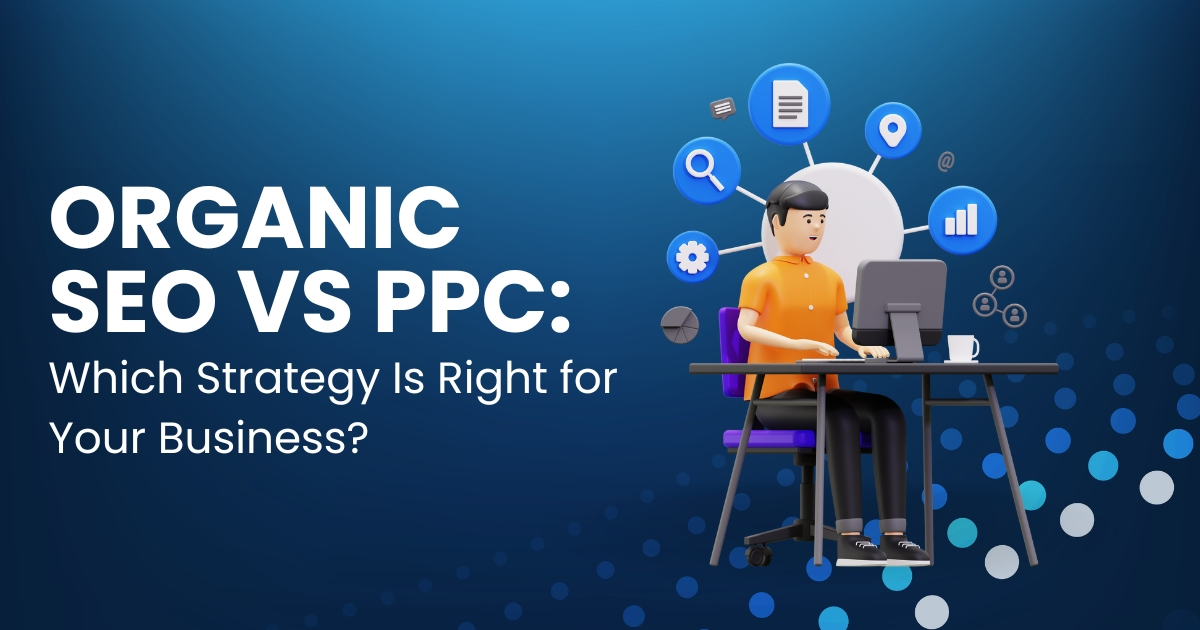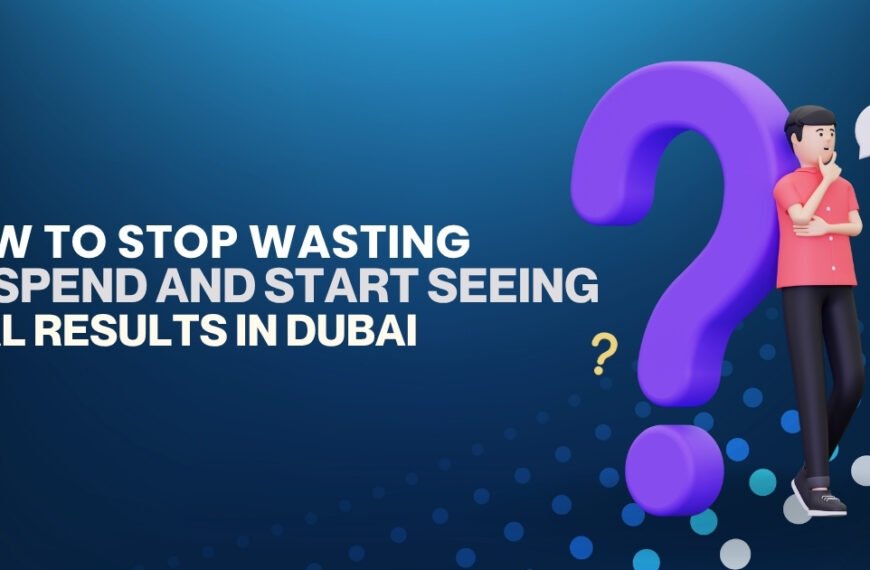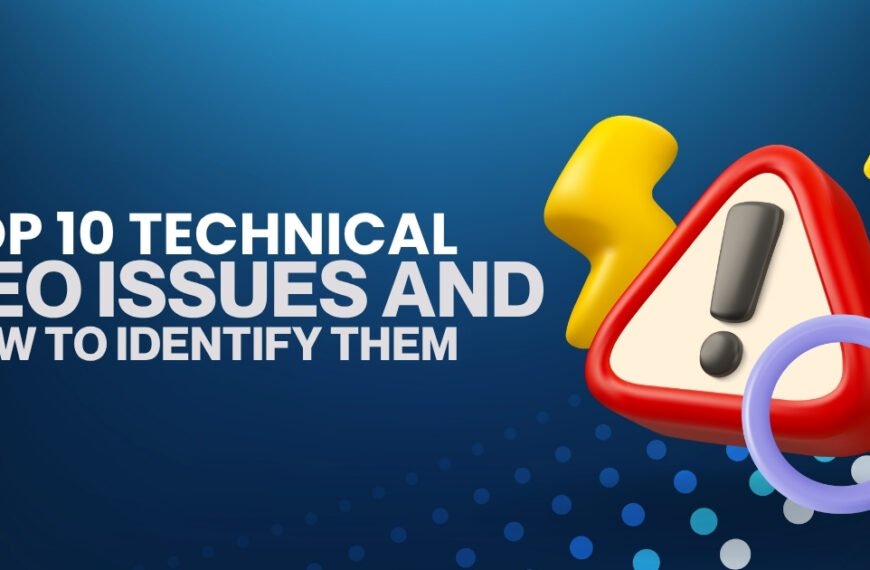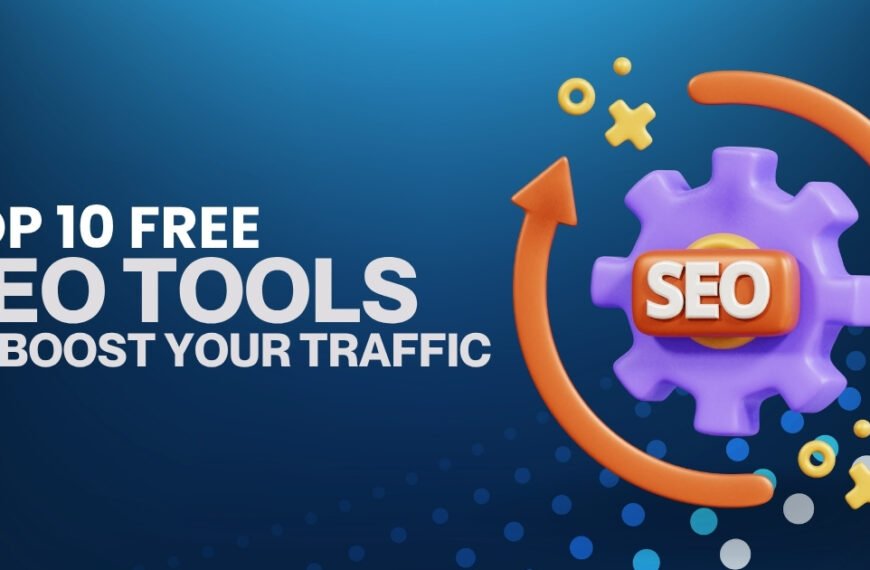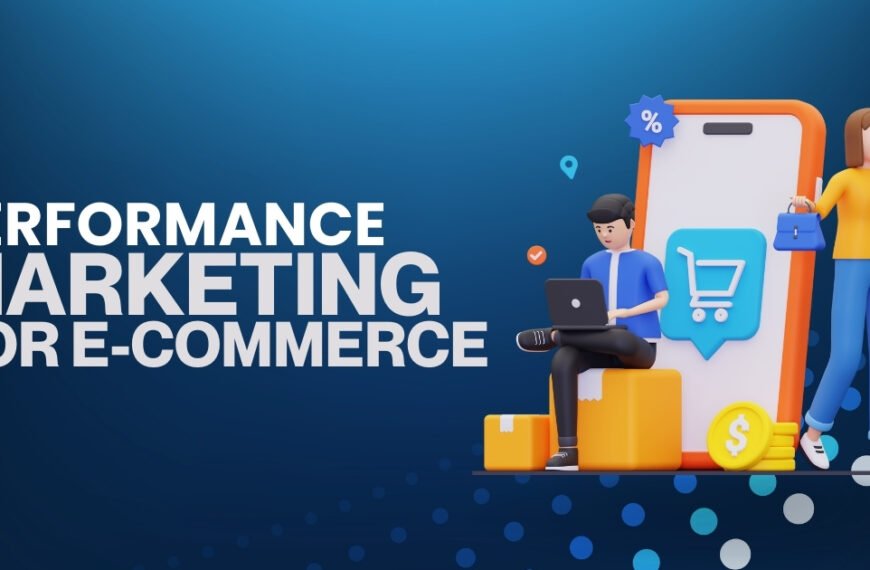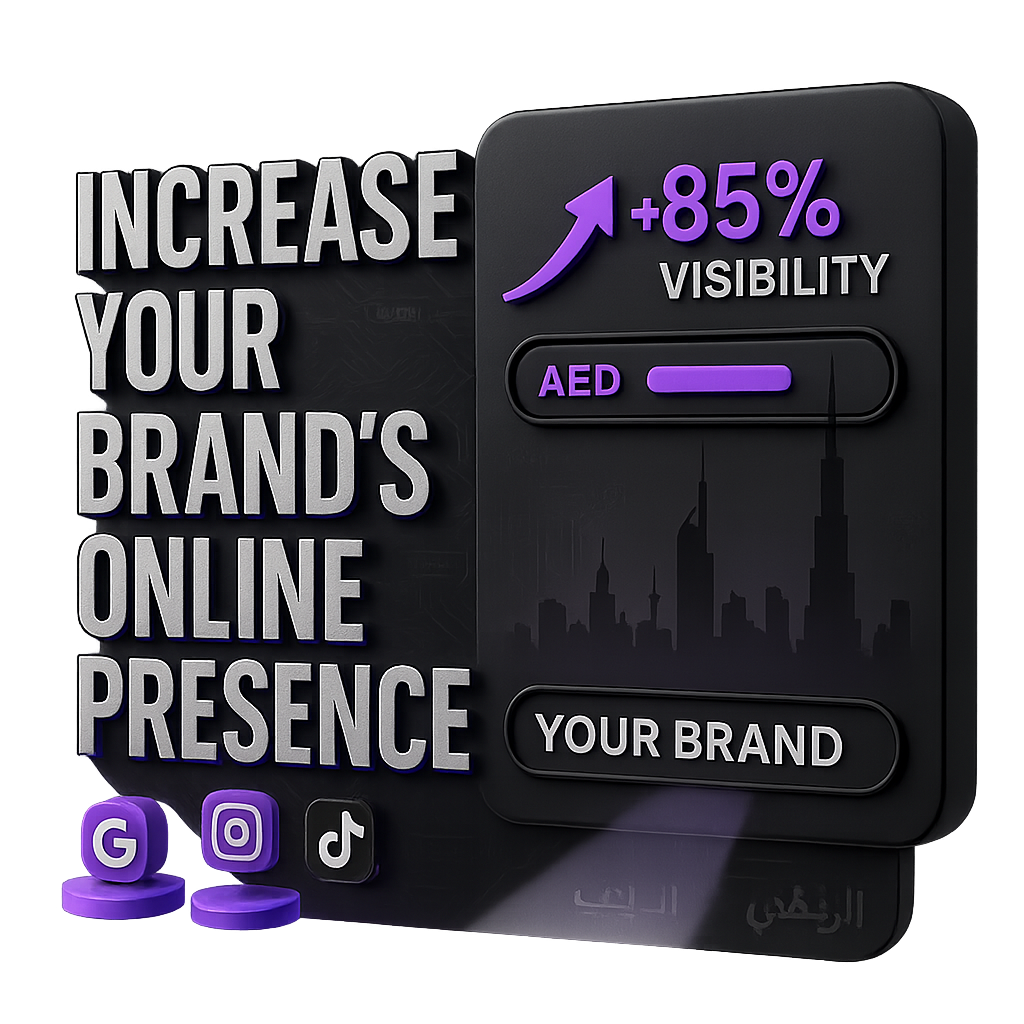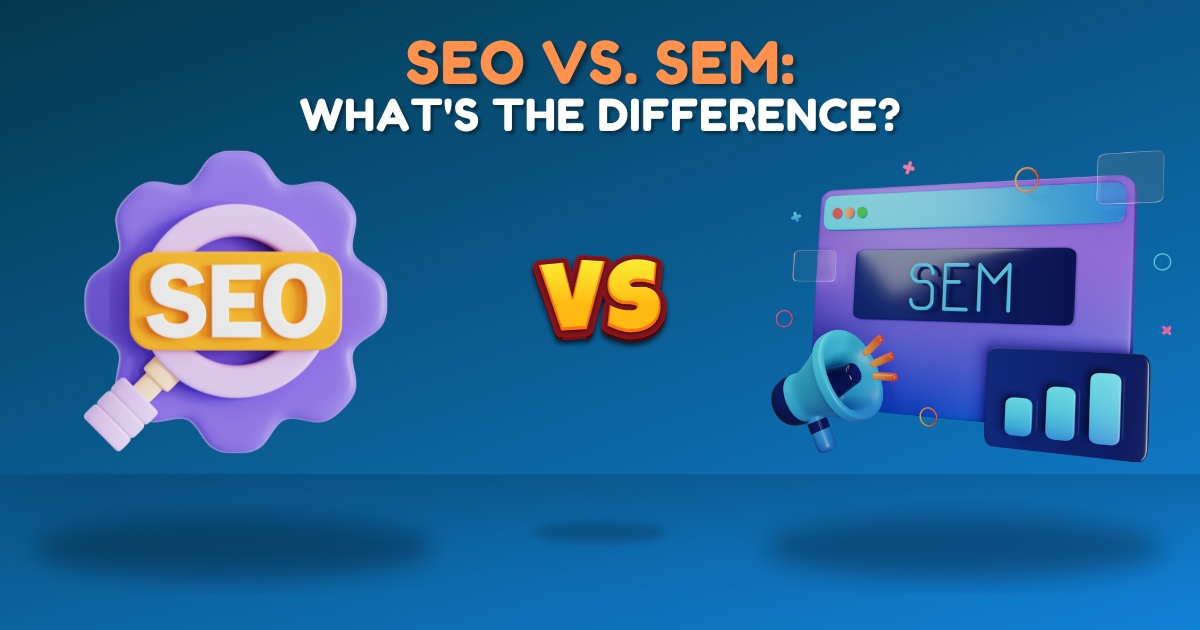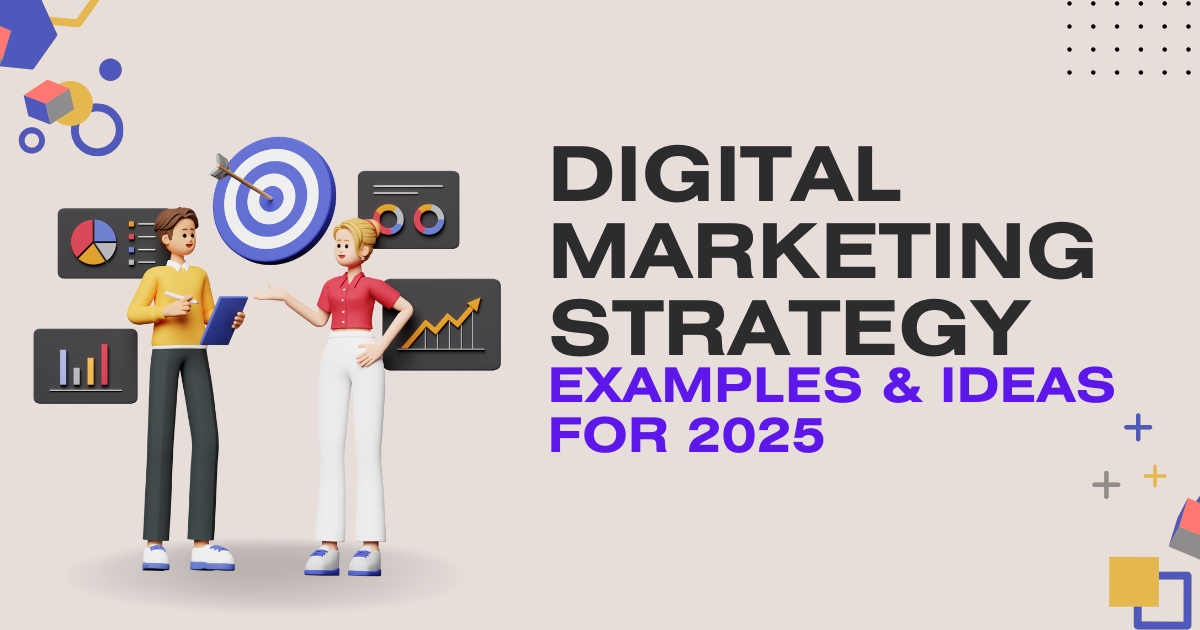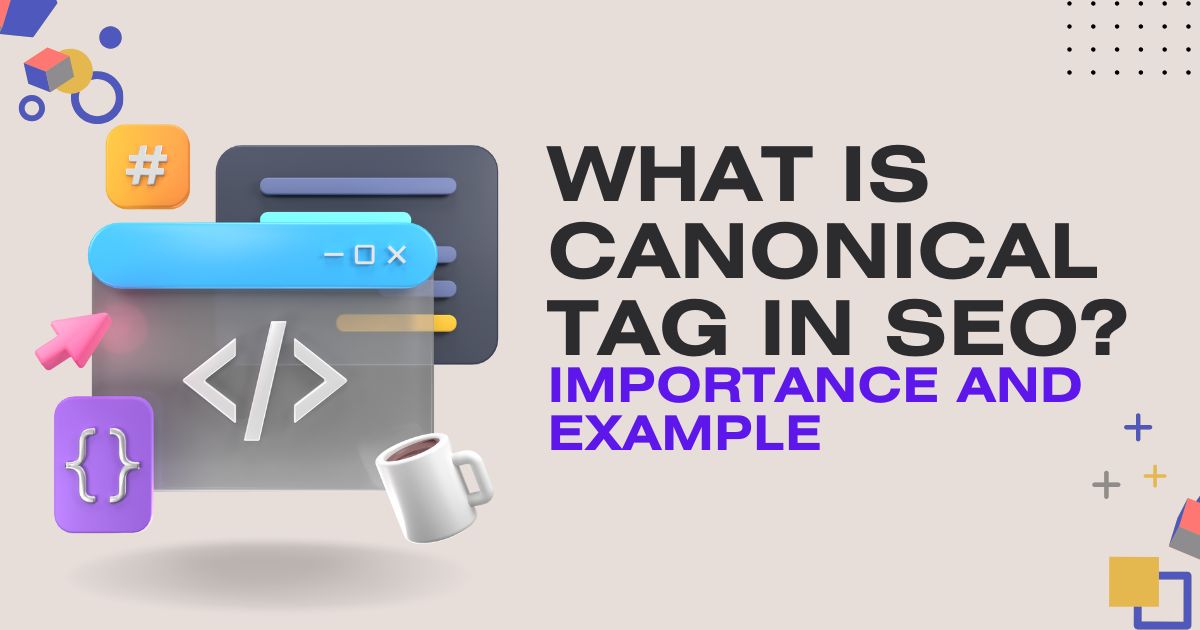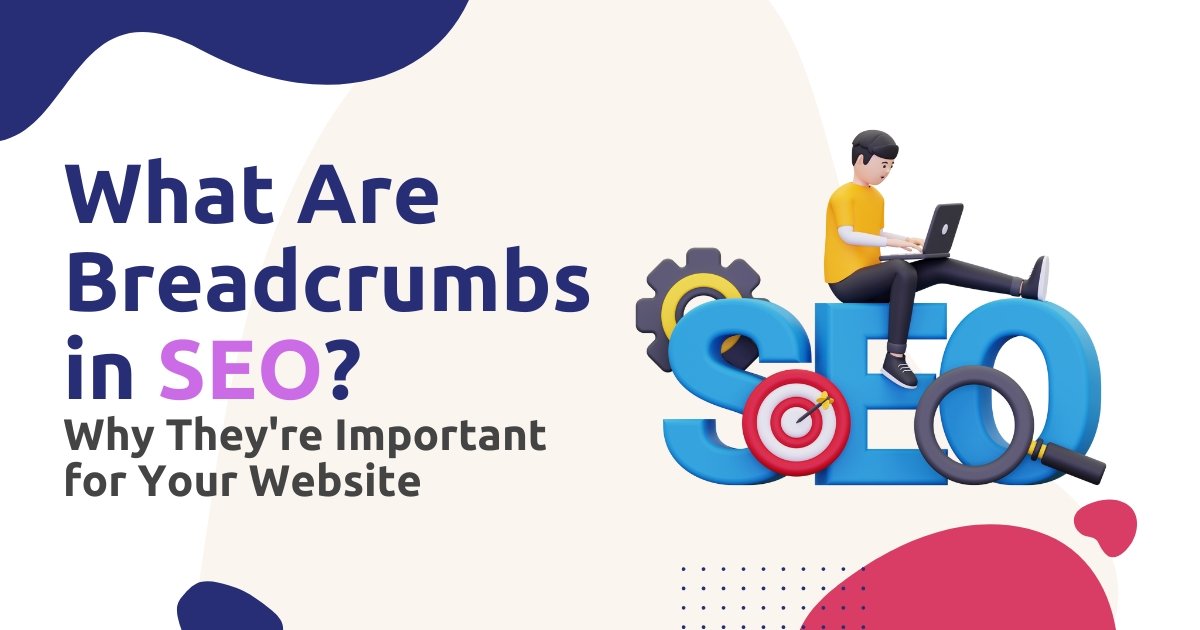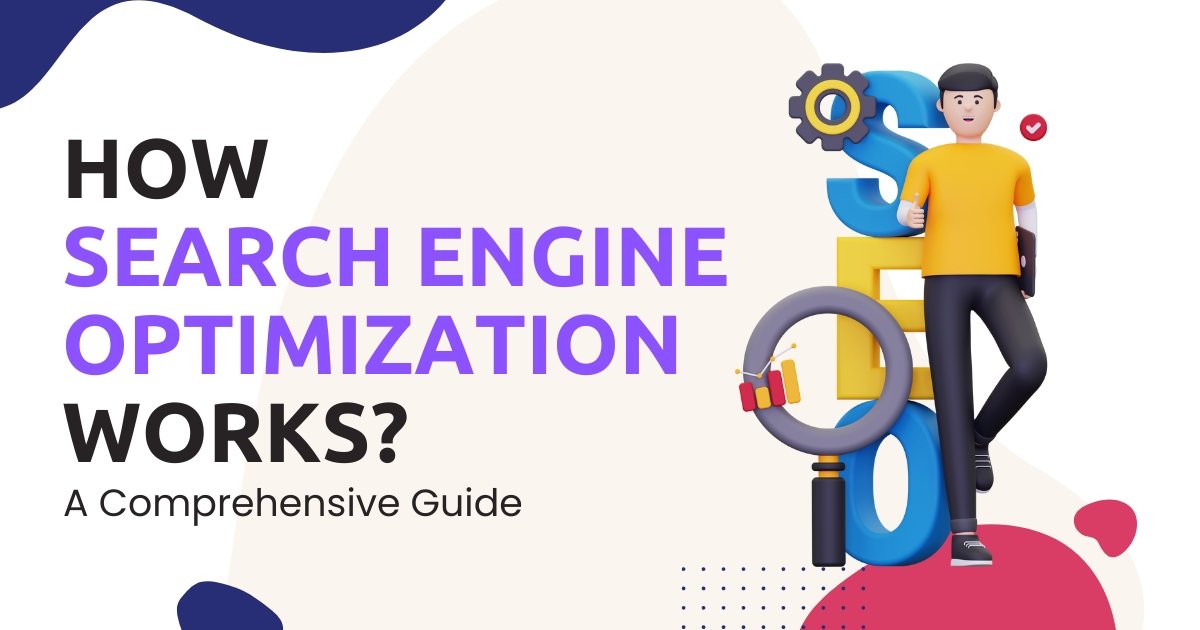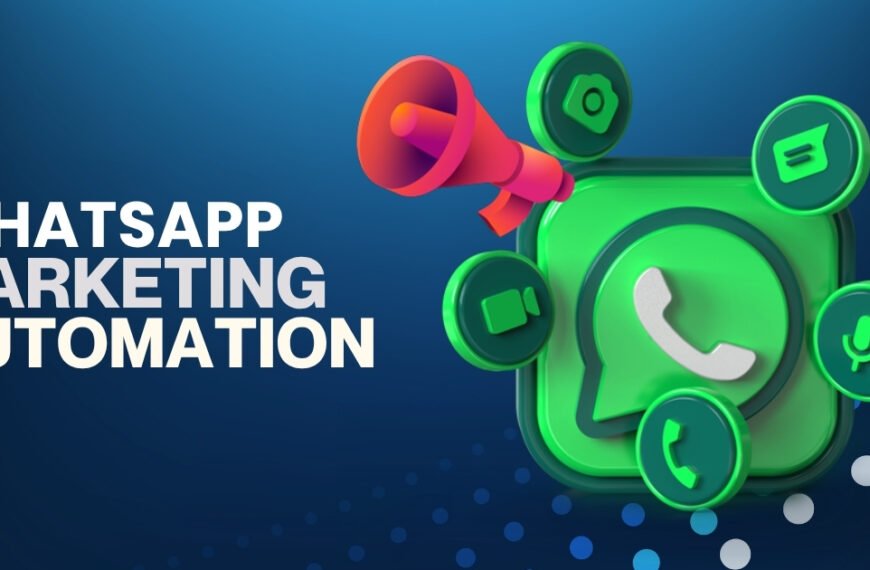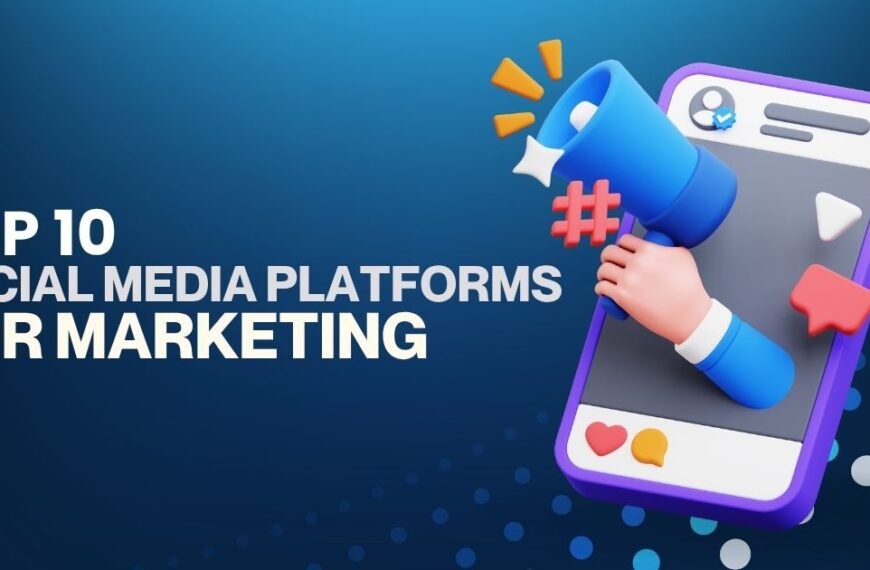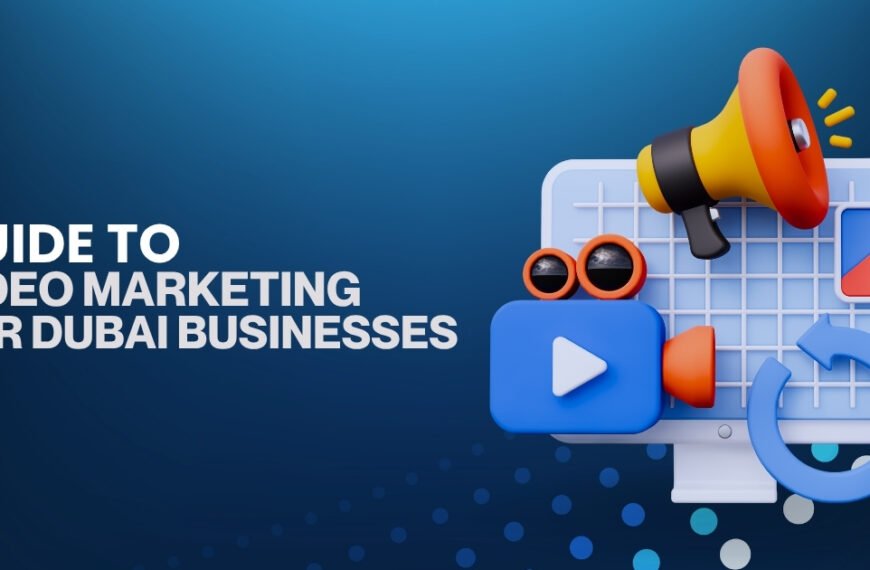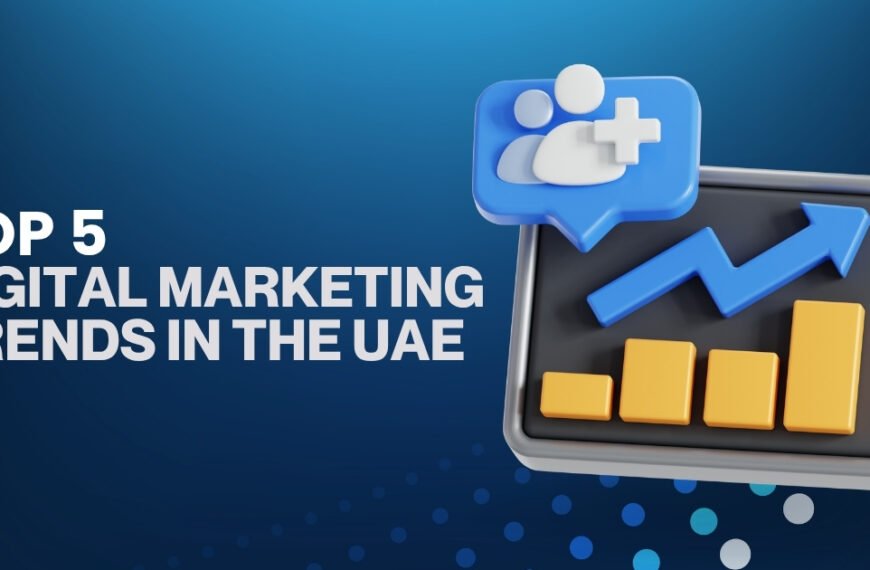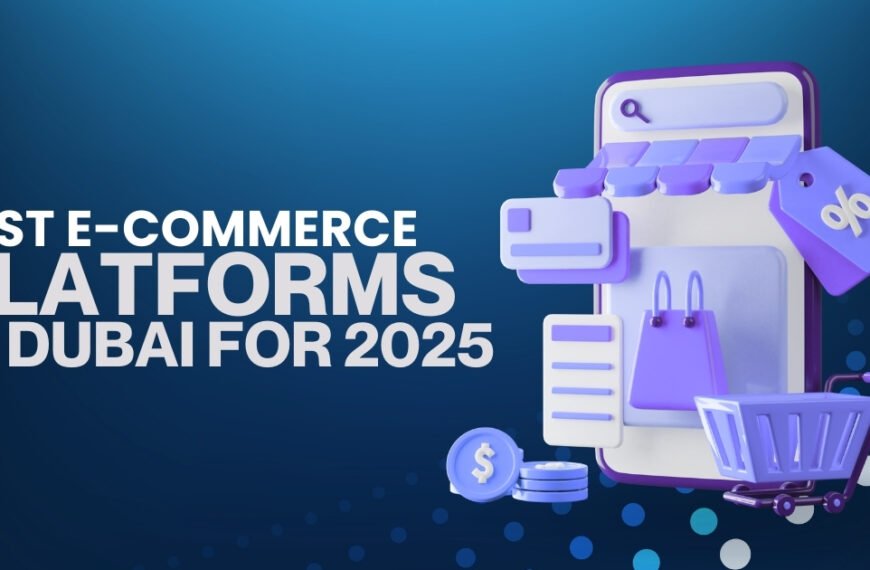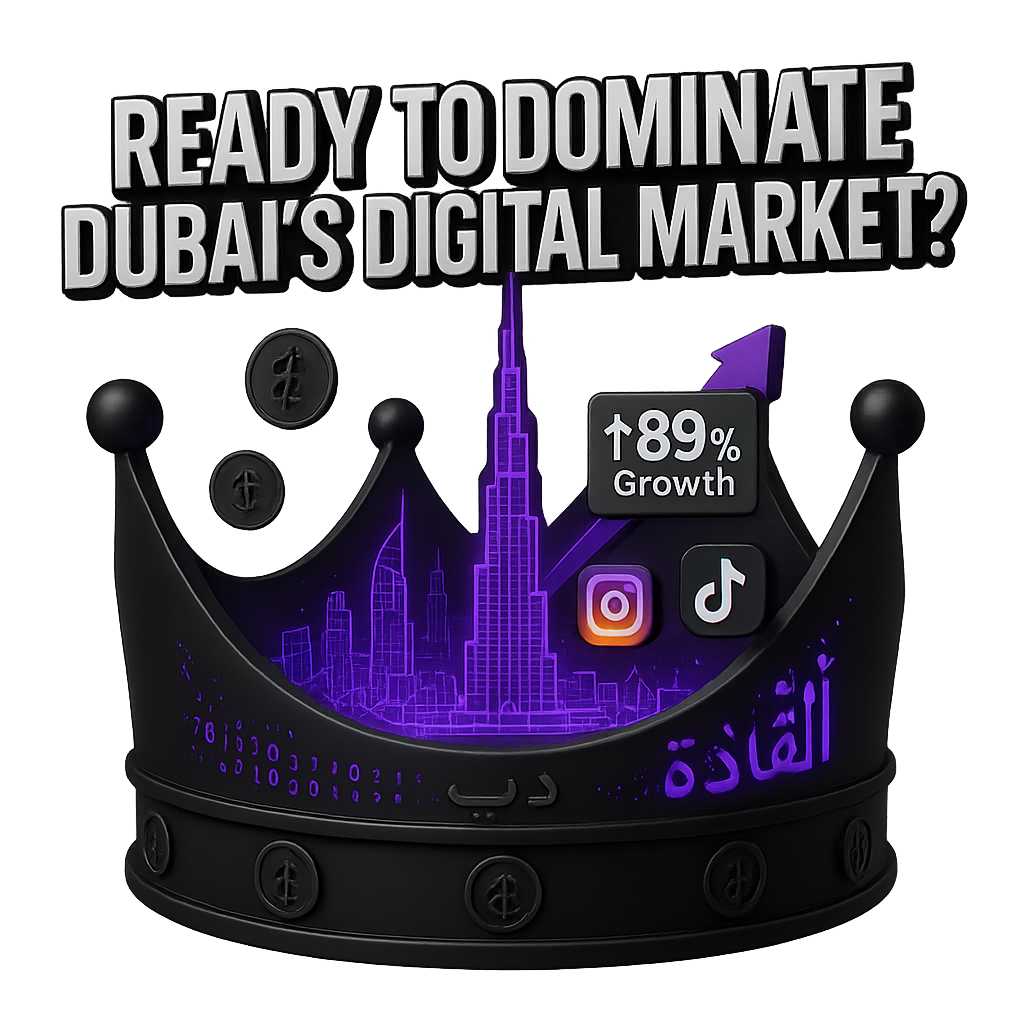Organic SEO vs PPC: Which Strategy Is Right for Your Business? For the right answer, you have to read the whole blog. Here are given complete strategy and Answer. Your website is the milestone of your business. Your website is the first point that connects you with different kinds of people. But how can people find you? This can be achieved through effective marketing strategies, such as PPC or Organic SEO.
PPC and SEO are both meaningful marketing strategies to grow your business. SEO is less expensive but gives the most effective and powerful outcomes. SEO is a less expensive marketing strategy, and it can give you effective results over the long term. On the other hand, PPC can give you the best results in less time, and you have more control over your results than SEO does.
If you are in search of the best PPC advertising agency that is trustworthy and authentic, then you can contact us. We will optimize and manage your advertising campaigns perfectly.
However, if you’re unsure which strategy to choose, PPC or SEO, consider SEO, as it may be the best option. But sometimes your company can use both of these strategies together to grow your business.
SEO brings audience to your website organically, while PPC uses a budget to bring audience to your platform. Both of these marketing platforms have their main meaning, advantages and usage.
Which strategy is best for your business, PPC or SEO?
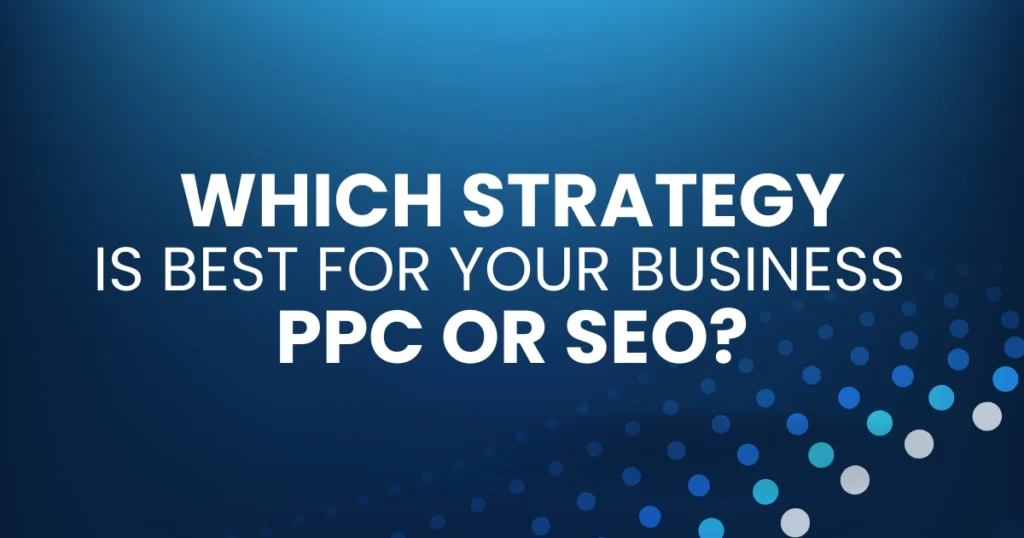
In this blog, we are going to discuss both PPC and organic SEO. We are going to cover all the points, like pros, cons, how to measure, and which one is better for your business, etc. So let’s begin:
What is SEO (Search Engine Optimization)?
Search engine optimization is a process used to create and optimize a website and its pages. SEO is usually used to improve its visibility in organic search engine results, such as Bing and Google.
As the AI tools like Gemini and ChatGPT emerged, SEO also included optimization for generative and conversational AI reviews.
SEO is just like a marathon, where you can see the results of your hard work after a lot of time.
To make your website appear at the top in organic search results, it is optimised or improved through SEO.
To improve your website’s SEO, it is best to hire an SEO service. If you have a business in Dubai and you want to improve your website’s SEO, then you can use our SEO services in Dubai to see meaningful results.
What is PPC (Pay-per-click)?
PPC is the process of bidding for specific keywords. PPC will show your advertisements at the top of the organic search results. PPC is basically an advertising model that helps you to achieve traffic instantly. In PPC, when someone clicks on your website then you have to pay for it. These advertisements can usually be seen on the search engine results and the different websites.
In SEO, you have to wait to see the ranking of your website in the search results, but PPC gives you instant results, which is its plus point because, through it, your advertisements are immediately visible in search results.
In short, in PPC, you use social media ads, Google Ads, and display ads to drive traffic to your site and also earn money on this platform.
What are the key differences between organic SEO vs PPC?
To choose the best strategy for your company, you first need to understand some basic but key differences. How they are influencing ranking, the primary difference lies in how much the cost is and the type of visibility and reach of each approach.
The main objective of both PPC and SEO is to increase traffic to your website and to boost the visibility of the website in search results.
But both SEO and PPC work in different ways and provide many benefits to the user. For any business, it is very important to understand where to allocate the digital marketing budget because to decide, you need to know the difference between PPC and SEO.
Let’s take a look at what PPC and SEO are:
Ranking factors:
SEO and PPC are both marketing strategies. Ranking in SEO is determined by how search engines evaluate your website’s relevance. Ranking factors include the quality of content, website structure, on-page elements such as keywords used, and off-page factors like backlinks.
Other technical reasons include mobile usability, user experience and site speed. Organic search marketing usually depends heavily on the organic authority of the website. The more optimised and authoritative your site is, the greater the chances of your website achieving a top ranking.
Time limit for the outcomes:
- PPC: Results are available immediately in PPC. In PPC, if any of your advertisements are live, they get funding, and your advertisements are also visible in search results, hence your website starts seeing immediate traffic. On the other hand, PPC can help you achieve immediate results. It can be possible when your campaign is set perfectly. When your PPC campaign starts, your advertisement starts displaying to your best possible customers. You pay for per click, that’s why when you activate your ad, traffic starts to flow to your website.
- SEO: Organic search ranking is a gradual process. It can take several months to increase traffic to your website through SEO, and some crucial improvements can also take several months as search engines gradually help to rank and index new content.
SEO takes much time to achieve the top ranking. Usually it takes 3 to 6 months or even more time. After this, you will get to see the effective results of SEO. This happens because Google is a search engine that takes time to index your pages, scan your website and evaluate its quality before ranking your website in search results. SEO is a gradual process in which results are gradually visible. And this process focuses on quality and consistency.
Cost:
There is a significant difference in cost between pay-per-click and search engine optimization. SEO includes things like preparing top-quality content, using services and improving the technical qualities of the website, like website speed and mobile compatibility and creating new backlinks.
SEO or PPC, whatever marketing strategy you are planning for your site, the initial cost of all these efforts can range from a few hundred to several thousand dollars, depending on the measurement. When you achieve top rank in search engines, the maintenance cost becomes very low. But optimization becomes very important to get ahead of others.
Traffic Strength:
- PPC: Whether there will be traffic on the website or not, this depends on website traffic. When you stop paying for advertisements, the traffic coming to your website through PPC also stops.
- SEO: This helps in getting long-term traffic to your website. Pages that get high ranking on the right engine can bring users to your website without paying anything in time.
Reach and visibility:
In terms of visibility, both of them have different characteristics, and each digital marketing strategy has different characteristics. And it plays a special role in our digital strategy. By establishing an organic and permanent presence, SEO generates traffic through targeted keywords. SEO gradually increases authority and visibility such that you can gain long-term advantages across multiple platforms.
In contrast, paid ads provide you with targeted visibility. You can target your audience based on behavior and demographics across multiple platforms. However, in PPC, visibility ends as soon as your budget runs out.
User perception and credibility:
- PPC: Some users have less trust in comparison to organic results, yet advertisements are displayed prominently and can be more effective with interesting offers and ad copy, especially for specific services or products.
- SEO: Organic listing is usually more popular and trusted among users. In comparison to log advertisements, people prefer to click on organic search results.
What are the advantages of SEO?
SEO is usually used by organizations in the long term to boost the visibility and presence, and trust. Through SEO, search engines get an opportunity to optimise your website and establish a great online presence.
Here are some top advantages of SEO:
Credibility and most trusted:
Research shows that organic listings achieve much higher CTR (click-through rate) than the advertisements paid for, making SEO one of the best platforms where brand credibility can be established.
Long-term traffic without per-click cost:
SEO requires a lot of investment in optimization and content, but it has many benefits in the area of cost-efficiency that are greater than PPC. Once a page gets a high ranking, it can drive organic traffic to a website without requiring any ongoing or additional budget.
Increase your ROI:
The work of SEO is to improve your ROI. When you invest in digital marketing strategies, you can get maximum ROI on the amount you have invested. Through a best and well-planned SEO strategy, you can expect a good amount of ROI.
In SEO, you can increase your lead conversions by approximately 13%.
For example, your overall leads are worth approximately 800 to 900 dollars, and you convert 20 new leads every month.
Through SEO and digital marketing, you can convert approximately 23 new leads every month. This means if the price of a lead is between 800 to 900 pounds, then 3 new leads or more can generate additional income of 2400 to 2700 pounds. This extra income is one of the biggest advantages of SEO for any business.
This additional income through searches also depends on your SEO. If your website is too low in Google search results or its ranking is low, then users will not know about your business. When your website has a low ranking in Google search results, you cannot generate leads through Google or any other platform. And you will not get extra income, which is also called revenue.
Boost the website traffic:
When we talk about the importance of SEO, or should we say its features, its main objective is to increase the amount of top-quality traffic to your website. This is one of the biggest features of SEO.
Compared to traditional marketing, digital marketing provides you with hyper-targeted tools.
Boost the number of sales and lead generation:
Another advantage of SEO is to boost the leads, sales and market shares of an organization.
When you search for keywords used by your targeted audience, you will appear first in search results. This enables you to get visits and clicks from customers who value you the most.
To understand the importance of ranking on the first page, you need to understand that 35 per cent or more of the traffic in search engine results comes from the first page alone. When you target a specific keyword with a search volume of 1600 per month, you will get more than 480 visits.
The number of users visiting the website does not all get converted, but still, the more people visit the website, the more the possibility of an increase in conversions and sales increases.
SEO can reduce the advertising costs:
SEO reduces your advertising costs and can be a profitable addition to your business by reducing your marketing expenses. By implementing the best SEO strategy, your company can use top-quality keywords to rank on the top page of search results and show its presence.
SEO not only reduces advertising costs, but it also provides the option for reinvestment. For example, instead of running 6 PPC campaigns, you can focus on 2 PPC campaigns and then use your savings to expand your content marketing strategy.
SEO not only reduces your digital advertising expenses but can also reduce your traditional advertising costs. Many businesses that invest in SEO realize in the first year of investing that it is a much more effective and affordable option than traditional marketing. And it gives much better results than traditional marketing.
What are the disadvantages of SEO?
As we discussed above that SEO provides various benefits to the business, but it also has some challenges.
Businesses that rely on organic search also need to understand the other challenges, especially when it comes to resources for viewing results.
Here we are going to discuss some disadvantages of SEO:
It takes time to get results:
SEO takes more time than investing money. You need to keep looking at desirable and meaningful results in SEO, as visible results do not come overnight, and it can take anywhere from 6 months to 1 year.
Competitive landscape:
SEO is a very competitive field, especially for large markets and industries. To get high rankings, you need deep research, algorithm changes and a strategic plan. Along with this, you also need to stay updated with new updates and optimizations.
It can be quite challenging for you to achieve a higher ranking in search engine results than your competitors and maintain that ranking.
Constant maintenance is required:
SEO requires regular updates, constant improvements, and refreshing. The factors that influence search engine ranking constantly change with the times, and you also need to be aware of algorithm updates. You need to stay focused on SEO; if you are not focused, then it can also negatively affect your marketing. If you are not focused or you do not have time to focus on SEO, then it will be better for you to hire an SEO marketing agency that can manage and maintain the SEO of your business.
4. Algorithm Uncertainty:
Google frequently updates its ranking algorithms, meaning that even well-ranked pages can see fluctuations. If you don’t have a well-planned SEO strategy for your website, it can have a negative impact on your website’s visibility, and your visibility can be at risk.
What are the advantages of Pay-per-click (PPC)?
People prefer to run paid marketing campaigns because of the many benefits that PPC provides to their business. This gives you benefits such as targeted advertisements, immediate results, and budget control. Pay-per-click advertisements also provide a great opportunity to increase targeted traffic to your business and increase your online presence.
Some other benefits of PPC are as follows:
1. Instant results:
Launching PPC campaigns can generate leads and traffic to your website immediately. PPC is a perfect option for businesses that want to take their business to new heights in a short time by increasing sales and visibility of their business.
2. It gives the measurable results:
In PPC, every impression, click, and conversion can be tracked, hence it is considered one of the most measurable digital marketing strategies. In PPC, you can assess the performance of your website and take data-based decisions. You can scale down or scale up based on the ROI (return on investment). The level of control in SEO is unmatched.
3. Brand visibility:
Whether your users click on the advertisements or not, showing the presence of a business’s advertisement in search results on the top popular websites or on other social media platforms can increase brand credibility and brand awareness. When brand visibility increases, more people will recognize the brand, which can have a positive impact on future purchasing decisions and may motivate more customers to make a purchase.
4. Scalability and flexibility:
Through PPC, you get both financial flexibility and scalability. If you are getting the best results through PPC, you can reach more and more people, and when you get good results, your budget will also increase, which will make it easier to target more and more people. If your budget is not much, you can change your approach and reduce your spending accordingly.
What are the disadvantages of Pay-per-click (PPC)?
PPC has its advantages as well as disadvantages, including temporary results, ad blocking, and cost. These disadvantages are related to the specific problems that may appear while running PPC campaigns.
Some of the disadvantages of PPC are as follows:
1. It can be a prolonged process to manage:
For PPC campaigns to perform well, you need to manage them in the right way and constantly monitor them. As time passes, the PPC campaign can become more complex, especially when targeting keywords, demographics and strategies that need to be optimized.
2. Proficiency and complexity are essential:
To run the best PPC campaign, you need to know about the art of ad copywriting, bidding strategy, and keyword selection. If you do not have complete information or knowledge about something, then you end up spending your money on useless advertisements, which is a waste of both your time and money, and you lose out on the opportunities for better targeting.
4. The cost can be increased quickly:
Unlike organic traffic, PPC is a pay-to-play model. If you stop investing in your PPC campaigns, the flow of traffic to your website also stops. If your CPC is high, then it may be difficult to get a profit without a well-planned and well-optimized campaign and conversion rates.
5. Results are temporary, not permanent:
PPC provides immediate results to boost your visibility on the search engine results. But, as soon as the advertisement budget ends, your website’s visibility in search engine results also ends. On the other hand, SEO provides you the long-term results.
In PPC, it is very important to invest in generating new leads and keep maximum traffic on your website. Once you stop paying for your advertisements in PPC, the generation of new leads and traffic to your website will also stop, which is one of the biggest disadvantages of PPC.
Which is more effective for your business, PPC or SEO?
Every marketing strategy has its advantages and drawbacks, but which one you choose depends on your business goals as well. Which strategy is best for you depends on whether you want immediate results or you want to see results over time.
If you are one of those people who believe in patience and time, then SEO is the best option for you. SEO does take time to show desirable results, but SEO provides you with opportunities for long-term business growth, such as customers staying on your website for a long time. SEO targets organic traffic, which increases your site’s reputation and credibility. SEO is the best strategy for permanent growth, which is time-consuming but gives you the best results over time.
If you are one of those people who want quick results, then you can invest in a PPC marketing strategy. PPC gives you immediate results, like instant traffic on your website, and you also get to see visible results. PPC is the best option for those businesses that are running instant promotions on their website and believe in quick visibility.
Conclusion:
PPC and SEO both provide benefits to the business, but they have their own benefits. If you want immediate results, you can choose PPC, and if you can be patient and believe in seeing results over time, then SEO is the perfect option for you. But the right choice also depends on your business goals.
But in reality, the right marketing strategy is not just one; it is a combination of both. To choose which marketing strategy is best, you should consider your available resources, your budget, and the competitive landscape. You should look at your strategy in terms of long-term results and quick results.
If you are capable, you can create the best marketing strategy by combining both PPC and SEO, which will give you both instant and permanent results that will take your business to new heights.
Frequently Asked Questions
Should SEO and PPC ever be used at the same time?
Both SEO and PPC work better in your field. Both SEO and PPC complement each other. PPC helps in bringing fast traffic to your website, while SEO is considered a better option to increase organic traffic on your website. If both PPC and SEO are used together properly, then it helps in increasing the speed of your website and bringing regular leads to your website.
How long does it take to see results from SEO?
To see the results on your website through SEO, it usually takes 5 to 6 months. There is no doubt that SEO takes much time to give results, but it gives genuine and long-term results. If we compare it to PPC, then it can be an affordable option.
How to quickly improve SEO?
Here are some tips given below to quickly improve SEO-
- You should update your content from time to time
- You should use meta tags which create the content
- Understand the requirements of the customers and what they want.
- Use the specific conversion keywords in your content
- Stay up to date or aware of the current trends in SEO.
What businesses needs PPC the most?
Here are some type of businesses that gets the most advantage from PPC:
- Businesses that provide customers the event- based or seasonal value.
- Businesses that have the top customer lifestyle values
- Businesses that provides the different different kind of products
- Businesses that provide hard find products.

